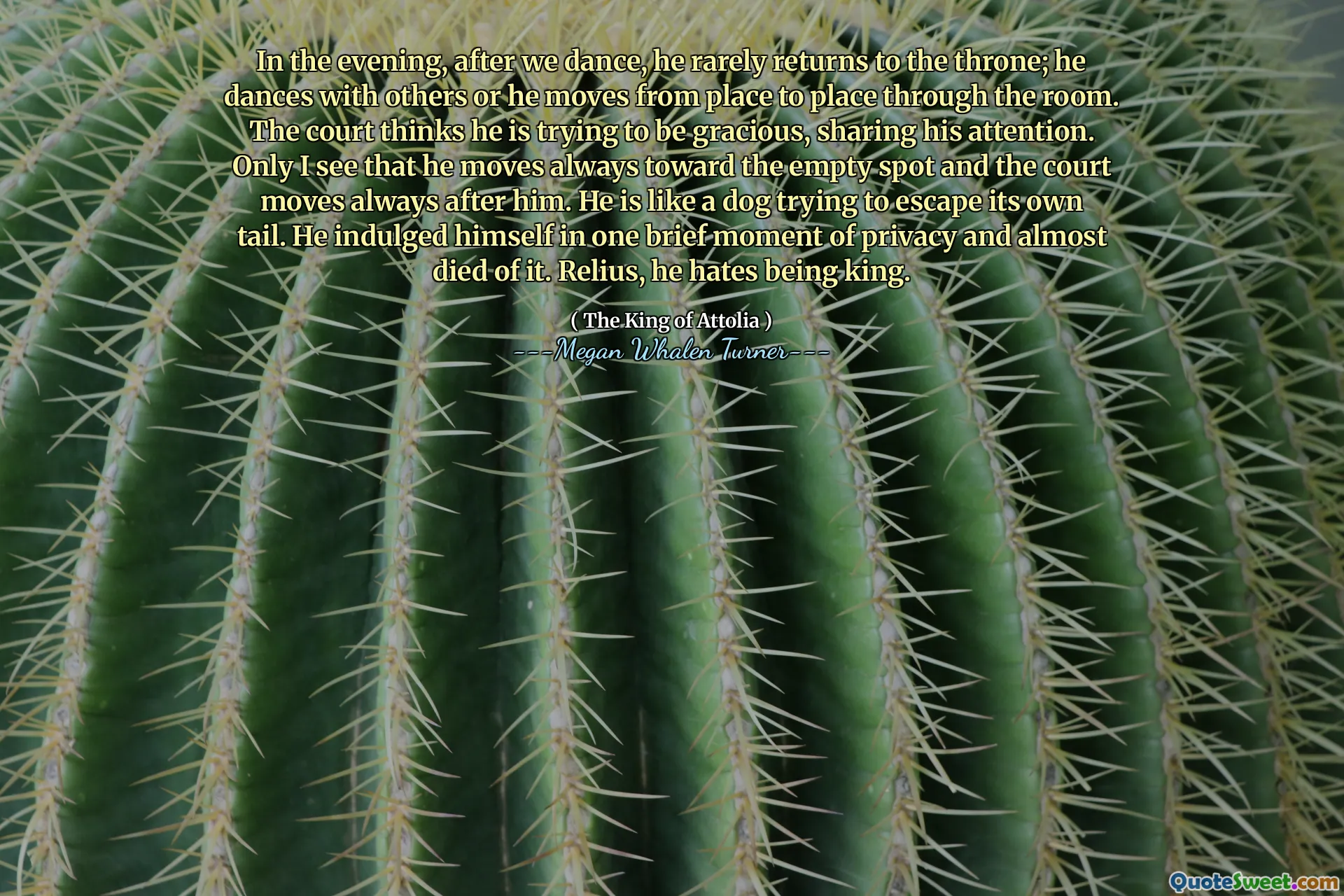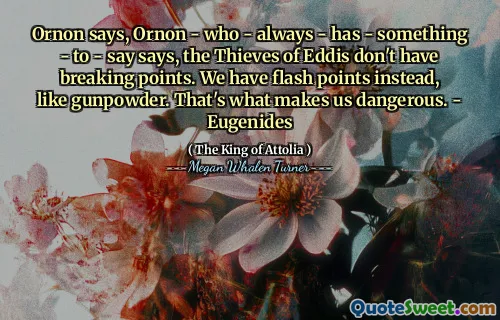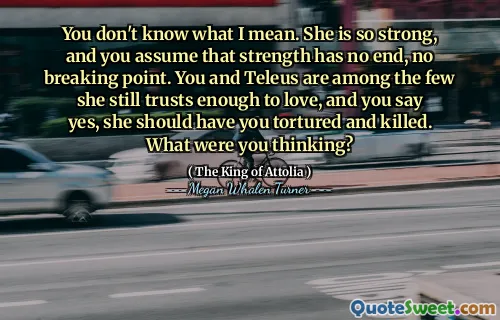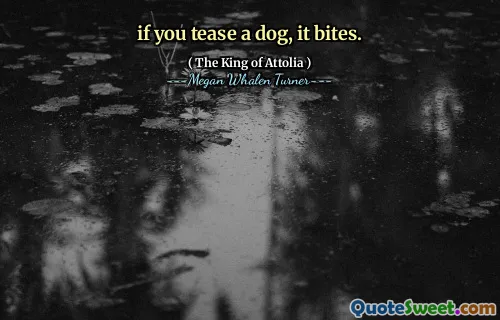
In the evening, after we dance, he rarely returns to the throne; he dances with others or he moves from place to place through the room. The court thinks he is trying to be gracious, sharing his attention. Only I see that he moves always toward the empty spot and the court moves always after him. He is like a dog trying to escape its own tail. He indulged himself in one brief moment of privacy and almost died of it. Relius, he hates being king.
This quote vividly illustrates the paradox of authority and loneliness inherent in leadership. The king, despite his position, appears restless and unfulfilled, seeking fleeting moments of privacy amid the chaos of courtly life. His wandering in the room symbolizes his internal struggle—caught between the responsibilities of his role and a desire for personal freedom. The comparison to a dog chasing its tail emphasizes the futility and cyclical nature of power—designed to secure stability often leads to self-conflict. The court's perception of his actions as gracious contrasts sharply with his intimate reality: a desire to escape the constraints of kingship. Relius’s insight reveals a deep understanding of the king's inner turmoil, suggesting that true happiness or peace eludes those trapped by their duties and societal expectations. The statement that the king hates being king exposes a universal theme—the burden of leadership often isolates and diminishes the individual's authentic self. Overall, the excerpt probes the complex relationship between power, identity, and happiness. It invites reflection on the human condition, emphasizing that external grandeur can mask internal despair, and true fulfillment may lie outside of prominence and authority. The metaphorical language enhances the message, making it an enduring reflection on the cost of sovereignty.









